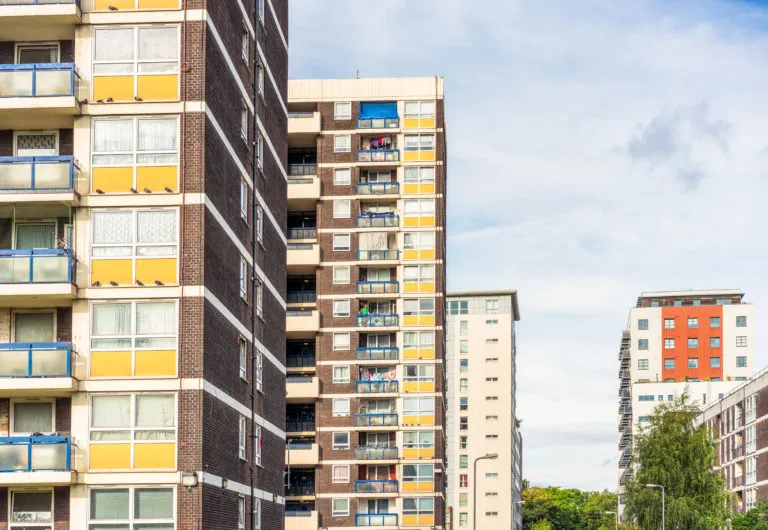General election 2019: Big changes coming in housing
Published: by Greg Beales

It’s housing day in the general election campaign, but it’s not a normal election housing day. In all recent elections the housing policies of the major parties have been welcome but small reforms at best and actually destructive at worst. Now, with major commitments from the big parties, this election marks a sharp turn from the incremental to the transformational. Make no mistake, the plans laid out to build hundreds of thousands of new social homes are big, as are plans to end no-fault evictions in the private rented sector.
And is it really a surprise that the major parties are aiming high when you look at the reality of what’s happening in our housing system, where the quiet misery of a decade ago has grown into the loud and visible emergency of today? On almost every measure our housing system is breaking. More than 320,000 people are now homeless, including tens of thousands of children being brought up in temporary and emergency accommodation. At the sharpest end, the Office of National Statistics (ONS) tell us that 726 of our fellow citizens died while homeless last year.
Change in how we live means a change in politics
Most people becoming homeless are in work, which reflects the break down in the basic economic deal that a job should mean you can secure your home. And this is a crisis affecting all parts of our society. Home ownership is in sharp decline. One in four families are bring up children in privately rented homes, facing the constant insecurity that comes from having the right to just two months’ notice before possibility of eviction. The number of pensioners renting privately is rising so fast that it’s set to treble. While the housing costs of home owners drop when they pay off their mortgage, older renters get no such respite – nor are the protections appropriate for people in later life. Imagine being given just eight weeks to move home at the age of 80.
It’s no wonder that as the reality on the ground has changed, so too have the politics. Some people have long assumed that the public want to see house prices rise, but the truth is today that many more people recognise rising prices are a problem – bad for people and bad for the economy. According to think tank Onward, at the 2001 election there were just 18 constituencies where renters made up more than 20% of voters. Now it’s almost 250. And housing has moved from an also-ran issue to one of the big domestic priorities alongside schools and crime.
Social housing is our best option
So, it’s in this context that we should see the desire for radical change emerging. There are many ideas to alleviate the symptoms of this dire emergency – many of them good ones. But there’s only one real cure: building social homes. No other policy has as much potential to solve the housing crisis.
Earlier this year, Sayeeda Warsi and Ed Miliband joined other commissioners in publishing Shelter’s commission on the future of social housing. Published at a time when the country was building just 6000 new social homes a year, its call for three million new social homes over the next 20 years represented a major challenge to the prevailing consensus on housing policy. But as Sayeeda Warsi said at the launch, when you look at the evidence you realise how wrong the country has got it.
Social housing has the potential to transform not just our housing system but our economy. It’s low cost, good-quality homes offered with long-term security to young, old, and all in greatest need. Building these homes is the only credible strategy to deliver the government’s target of 300,000 homes per year. And what’s more, as Capital Economics showed at the time, while there is an upfront cost as there is to all infrastructure investment, the homes pay back to government through savings in benefits and economic growth. The payback period for the 20-year programme is just 40 years.
Bold plans from the major parties
Now, both the Liberal Democrats, pledging 100,000 social homes per year, and Labour, pledging 150,000 (of which at least 100,000 would be social rent), have set out ambitious but credible plans to begin to deliver on this vision. In doing so, they have laid down the gauntlet to others – including the Conservatives.
We haven’t yet seen the full Conservative plans, but it does now appear that they will commit to scrapping Section 21 ‘no-fault’ evictions. This would be a major win for renters and is further evidence that the debate is changing and the rules are being re-written for those who rent. The missing piece in the Conservative plan – at least in what we have seen so far – is any investment in new social housebuilding. We’re hoping with the publication of the manifesto that this will change. If you’re serious about tackling this housing emergency, this is the way to do it.
Sign our petition and help us make sure that social housing stays at the top of the new government’s agenda.